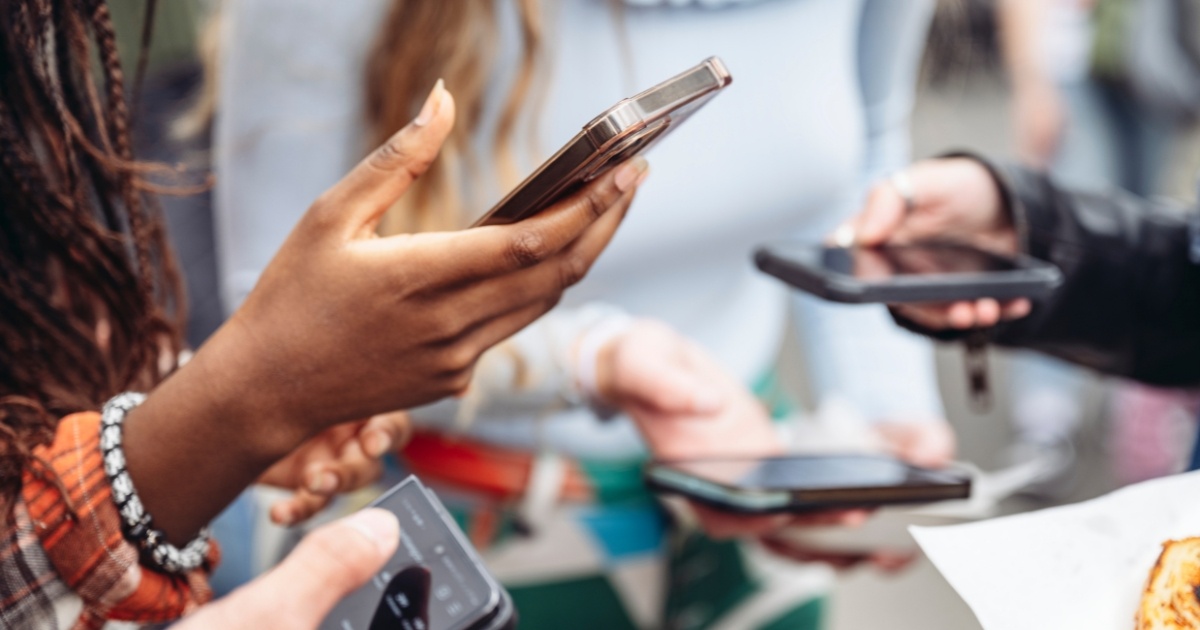Social media is a resource that phone users often use to give them something to do. This significantly worsened during the height of the COVID-19 pandemic, when we were quarantined and had nowhere to go. Teens are more likely to experience negative health impacts from too much social media as their brains continue to develop. In fact, according to a study that was conducted by the Journal of the American Medical Association, teens who look at social media for more than three hours a day have a higher chance of experiencing mental health problems in the future. The primary purpose of social media platforms is to take up our time, draw us in, and have us scroll for hours. Making oneself aware of the adverse effects of spending too much time on social media allows us to consider those facts. Hopefully, it will encourage people to use social media less.
Why Is Social Media a Harmful Addiction?
A study conducted by the Chicago Booth School of Business showed that scrolling social media can be more addicting than using tobacco and alcohol. Because of this high addiction risk, many consequences can come from using social media too often. These include anxiety, depression, being more prone to irritability, and not being active with keeping relationships.
What Are Unhealthy Social Media Habits?
Signs that can show that someone has an unhealthy relationship with social media or is experiencing an addiction include:
- Social media is the first thing people visit when they wake up.
- Spending lots of time scrolling.
- Posting multiple times a day on multiple social media platforms.
- Utilizing hashtags in methods of communication outside of social media, like texting or sending emails.
- Constantly checking to see how many likes and comments one’s posts have.
- Sharing information that should not be shared with others except for close friends and family.
- Spending time on social media while out at social events.
- Getting rid of social media posts with low likes and comments.
- Checking one’s phone every time there is a notification to see if it is from Facebook, Instagram, Snapchat, etc.
- Experiencing negative feelings of self-worth due to what others post on their social media pages.

Who Does Social Media Addiction Affect the Most?
Teenagers and young adults are the two age groups at highest risk of becoming addicted to social media. In fact, forty percent of internet users between the ages of 18 and 22 say that they are addicted to social media, and 37% of those between the ages of 23 and 38 report the same.
Which Is the Most Addictive Social Media?
It can be challenging to determine which particular social media platform has the highest addiction rates. However, studies have been conducted to determine which ones users tend to spend the most time on. YouTube and Facebook were the two social media platforms that users spent the most time on. Twitter, Instagram, Pinterest, and LinkedIn were also highly used.
How To Avoid Social Media Addiction
Some tips on how to avoid social media addiction include:
- Do not have social media apps on your phone—use your computer instead. This will prevent social media notifications from coming through, making it less likely that anyone will be encouraged to start doom scrolling.
- Reflect on your reasons for using social media. Understand its role in your daily life and assess its impact, whether positive or negative.
- Track your daily social media usage. This practice is crucial in understanding how it affects your productivity and distracts you from your daily responsibilities.
- Work on your self-control. This can be an effective way to prevent oneself from becoming addicted to social media. Excellent self-control methods include putting a time limit on how long you can stay on social media and paying attention to how you are feeling during this time.
- Turn off notifications from the social media platforms you use. By not receiving messages, you are not having that distraction and are less likely to get on social media apps as often.
Choosing a healthy plant-based and vegan diet is most beneficial when it comes to:
-
Higher levels of energy;
-
Improved sleep;
-
Aids in energy and overall happiness;
-
Provides a sense of comfort and relief;
-
Could prevent major diseases such as obesity and diabetes;
-
Accomplish weight-loss and management; and
-
Improves mental and cognitive functioning.
There are really no excuses not to try healthier habits in your everyday life. If you are a man or woman looking for specific benefits of adopting healthier habits or just want to know about the general healing properties of herbs. Please remember to comment or post any health questions, or contact us directly!
Also feel free to share any of your favorite recipes to make and share it with the Assuaged community on our ➡️ Share A Recipe ⬅️ page!
Resources
Hoffman, K.S. (2024, July 17). Social media addiction statistics. AddictionHelp.com.
Iberdrola. (n.d.). Addiction to social media: Main causes and symptoms. Iberdrola.
Miller, S. (2022, June 2). The addictiveness of social media: How teens get hooked. Jefferson Health.
Spanjar, P. (2023, March 27). Tips for preventing social media addiction. Providence Projects.
Walden University. (n.d.). Signs of unhealthy social media habits mental health practitioners should spot. Walden University.



















